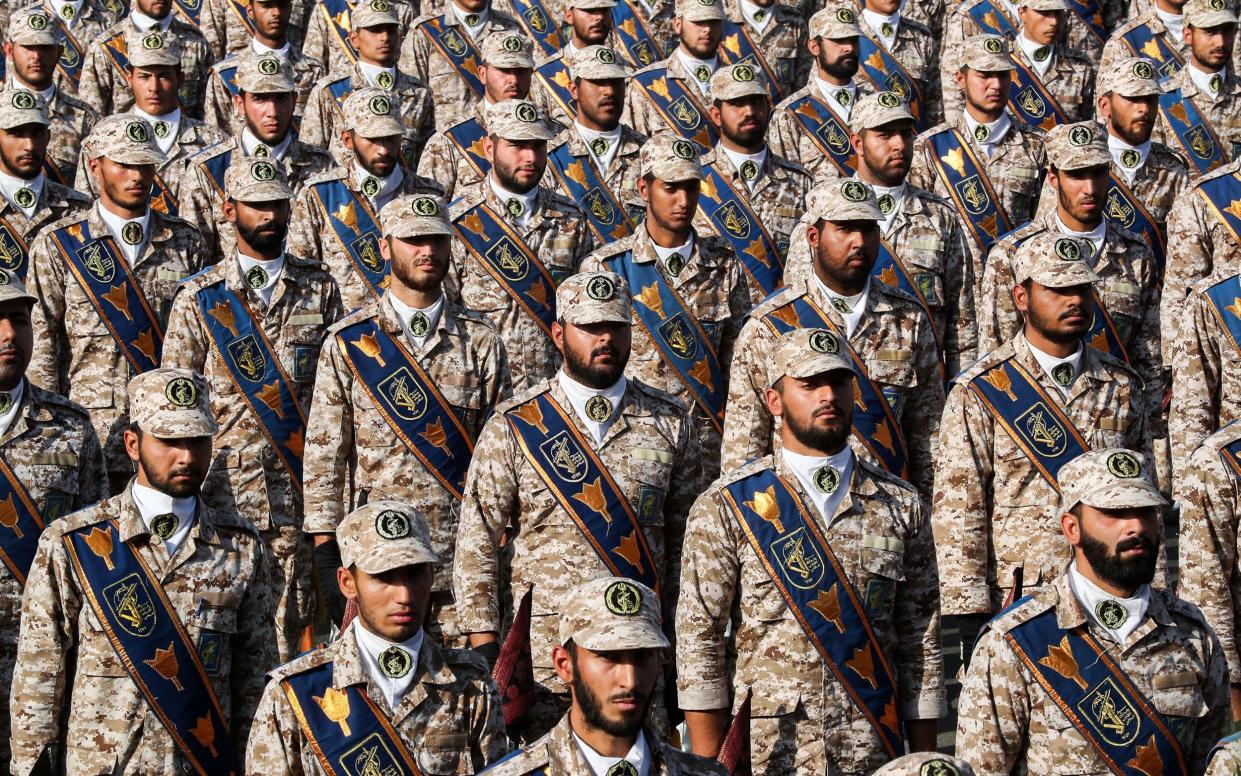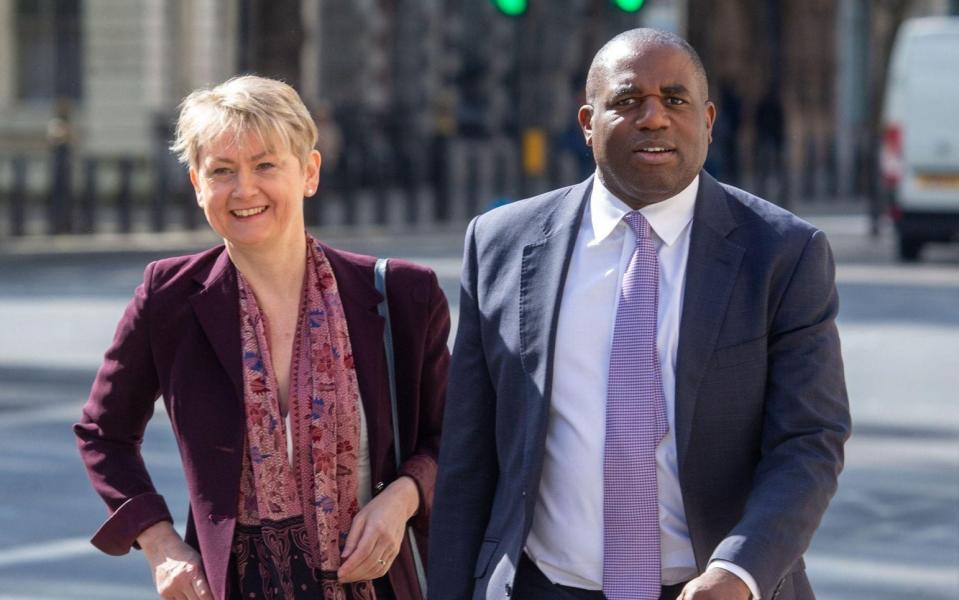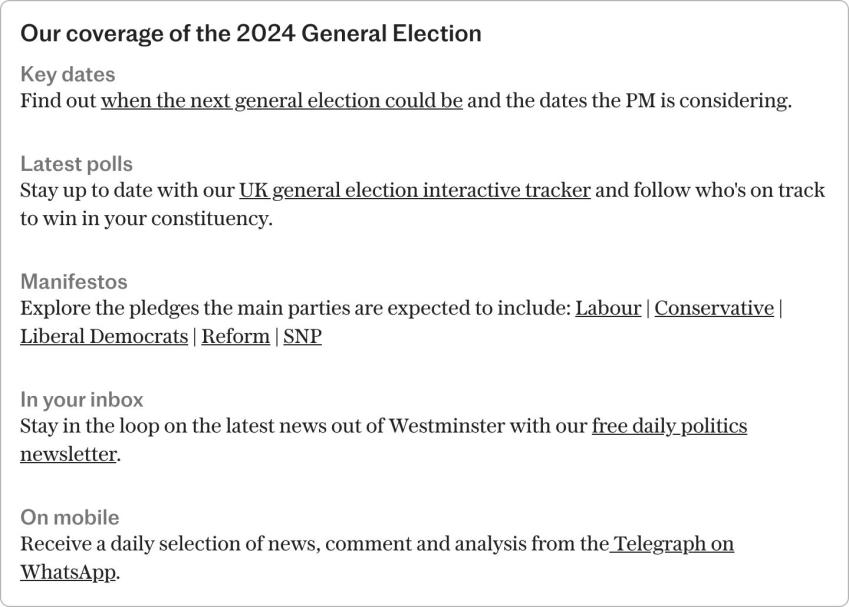Labour ‘will change the law to officially declare Iran’s Revolutionary Guard a terrorist group’

Labour wants to proscribe Iran’s Revolutionary Guard as a terrorist group by changing the law if it wins the election, The Telegraph understands.
Both Yvette Cooper and David Lammy, who are set to become home secretary and foreign secretary respectively if the Labour Party takes office next week, are backing the new approach.
The Tories have been considering proscribing the Islamic Revolutionary Guard Corps (IRGC) for more than a year but declined to act after splits between the Home Office and Foreign Office over how such a move would damage diplomatic ties with Iran.
Proscription is a mechanism that allows a government to formally declare a group a terrorist organisation, after which it is a criminal offence to belong to the group or encourage support.
Labour has concluded that the current approach is outdated and wants a different approach to bodies, such as the IRGC, which are closely interwoven with the state.

The IRGC is a military group with its own air, land, naval, and special forces that sits alongside Iran’s traditional armed forces and protects the nation’s fundamentalist regime.
Counter-terrorism police revealed last year that 15 plots by Iran to either kidnap or kill British or UK-based individuals had been foiled by police or the security services.
Critics of Iran, including on the Tory benches, have often called for the IRGC to be proscribed in recent years, a move the US administration took during Donald Trump’s presidency.
Hostile states
The Labour manifesto explicitly called out the IRGC, saying: “From the Skripal poisonings to assassination plots by the Iranian Islamic Revolutionary Guard Corps, threats from hostile states or state-sponsored groups are on the rise, but Britain lacks a comprehensive framework to protect us. Labour will take the approach used for dealing with non-state terrorism and adapt it to deal with state-based domestic security threats.”
Ms Cooper and Mr Lammy have a three-point plan to change the Government’s counter-terrorism approach to pave the way for proscribing the IGRC.
Under one aspect, a new “bespoke” proscription mechanism will make it easier for “state-based actors” to be formally designated terror groups.
In theory, any group can be designated a terror organisation under the current laws. But taking that step for one so interwoven with a foreign government brings many complications, since individuals are constricted from engaging with anyone linked to that group.
Intelligence agencies
Changes would be discussed with the intelligence agencies and counter-terrorism police and it is expected new legislation of some form would be needed.
Labour figures close to the policy insist specifics on how “bespoke” proscription would be decided after careful deliberation with relevant experts.
A second aspect will be updating the UK’s cross-government counter-terrorism strategy, called Contest, which was introduced in the wake of the Sept 11 2001 attacks in America.
A third will be a new “joint cell” between the Home Office and the Foreign Office to work together on how to tackle state-based threats posing a risk on UK soil.
Splits between these two departments have contributed to Rishi Sunak’s government not moving ahead with IRGC proscription.
Diplomatic channel
Both Suella Braverman, the former home secretary, and Tom Tugendhat, the security minister, argued for the move, which had been expected to happen in early 2023.
However, the Foreign Office is understood to have argued firmly against the change because it would have complicated diplomatic ties with Iran.
At points it was claimed that the US backed up the Foreign Office’s case, saying the UK having an open diplomatic channel with Iran was helpful.
The Oct 7 attack by Hamas, which was followed by Israel’s assault on Gaza, changed the situation in the Middle East, with the West seeking to avoid escalation in the conflict.
It is unclear what the timescale for changes would be if, as opinion polls indicate, the Labour Party wins the general election on July 4 and forms the next government.
If primary legislation is needed to bring in the new proscription approach, as one Labour source close to the policy suspects, a lengthy process of passing the law is likely to follow.
Proscription is a legal process and therefore any move to proscribe the IRGC would involve government lawyers building up the legal case before a final decision is taken.
Groups that have been proscribed recently include Hizb ut-Tahrir, a Sunni Islamist political grouping, and Wagner Group, a private military organisation which has acted as a proxy for the Russian state.


 Yahoo News
Yahoo News 
